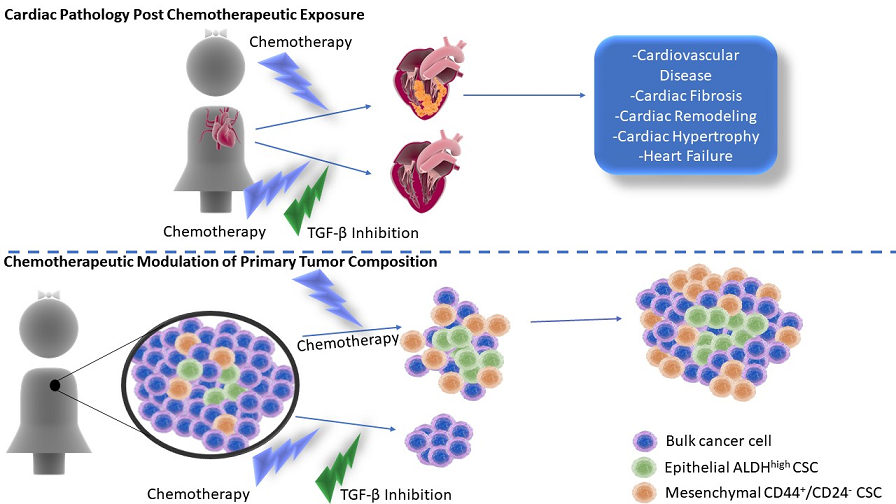Triple-negative breast cancer (TNBC) is a subtype of breast cancer that disproportionally accounts for the majority of breast cancer-related deaths due to the lack of specific targets for effective treatments. While there is immense focus on the development of novel therapies for TNBC treatment, a persistent and critical issue is the rate of heart failure and cardiomyopathy which is a leading cause of mortality and morbidity amongst cancer survivors. In this review, we highlight mechanisms of cardiotoxicity post-chemotherapeutic exposure, assess how this is assessed clinically and highlight the transforming growth factor-beta family (TGF-β) pathway and discuss its role as a mediator of cardiomyopathy. We highlight recent findings demonstrating TGF-β inhibition as a potent method to prevent cardiac re-modeling, fibrosis and cardiomyopathy. We describe how dysregulation of the TGF-β pathway is associated with negative patient outcomes across 32 types of cancer including TNBC. We then highlight how TGF-β modulation may be a potent method to target mesenchymal (CD44+/CD24-) and epithelial (ALDHhigh) cancer stem cell (CSC) populations in TNBC models. CSCs are associated with tumorigenesis, metastasis, relapse, resistance, and diminished patient prognosis; however, due to plasticity and differential regulation these populations remain difficult to target and persist as a major barrier barring successful therapy. TGF-β inhibition represents an intersection of two fields: cardiology and oncology. Through inhibiting cardiomyopathy, cardiac damage and heart failure may be prevented and through CSC targeting, patient prognosis may be improved. Together, both approaches, if successfully implemented would target the two greatest causes of cancer-related morbidity in patients and potentially lead to a breakthrough therapy.

